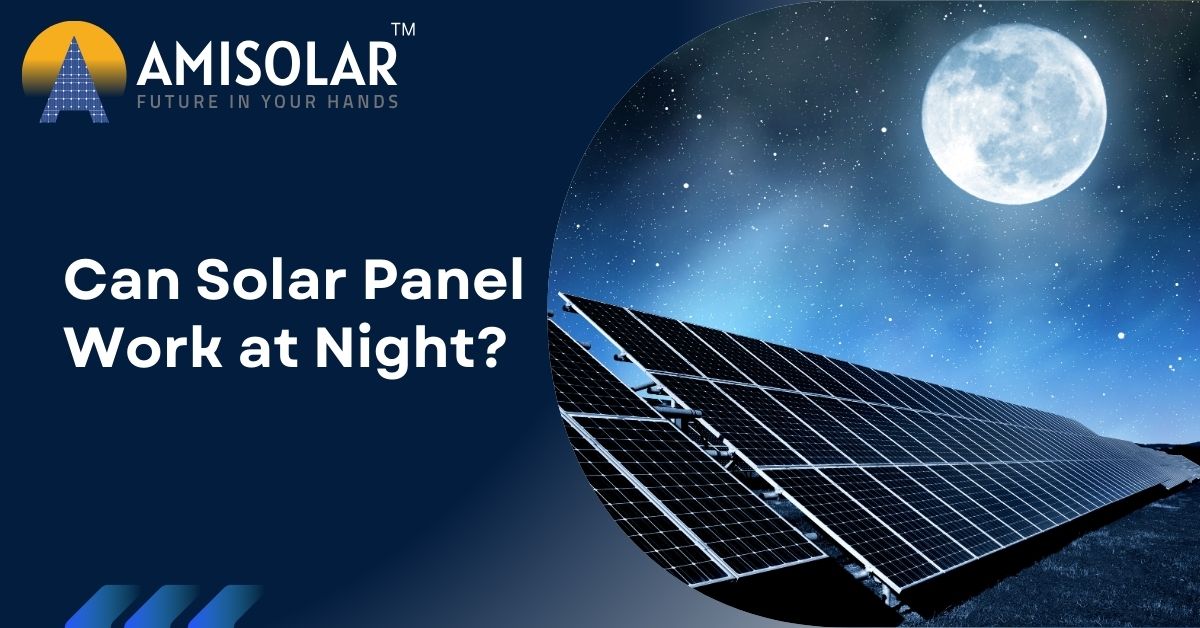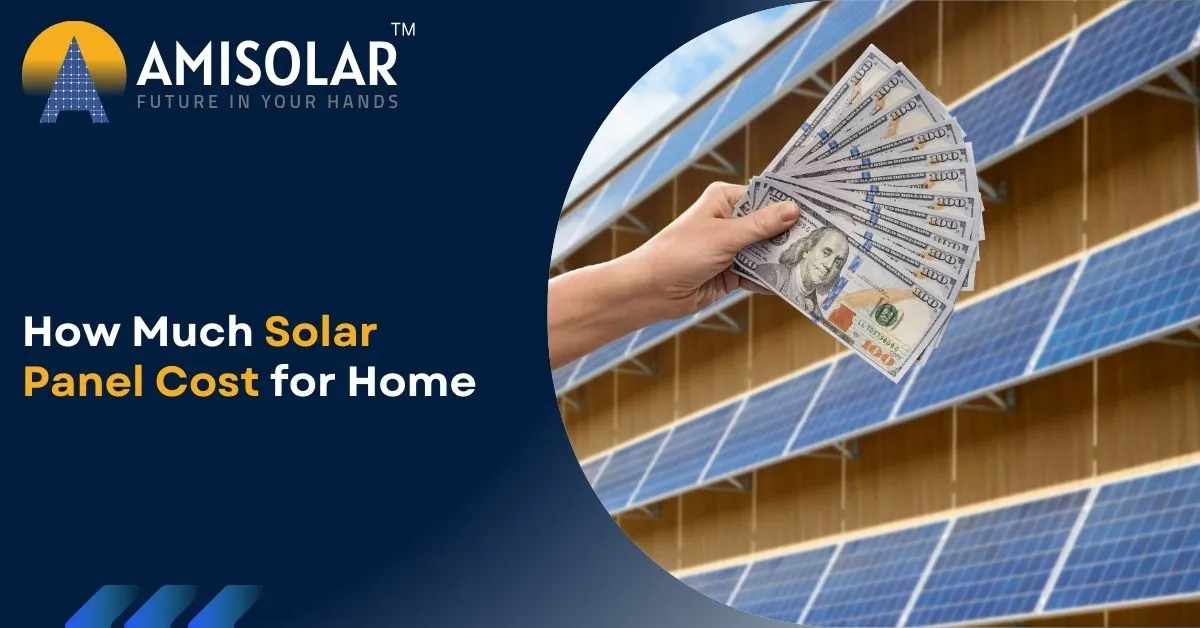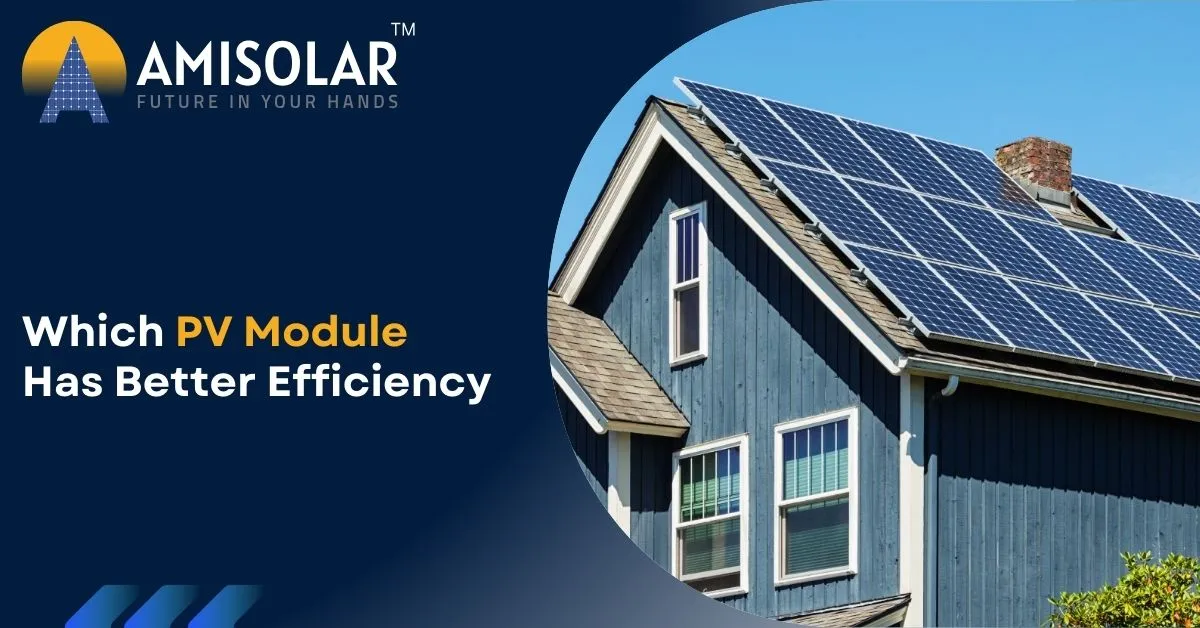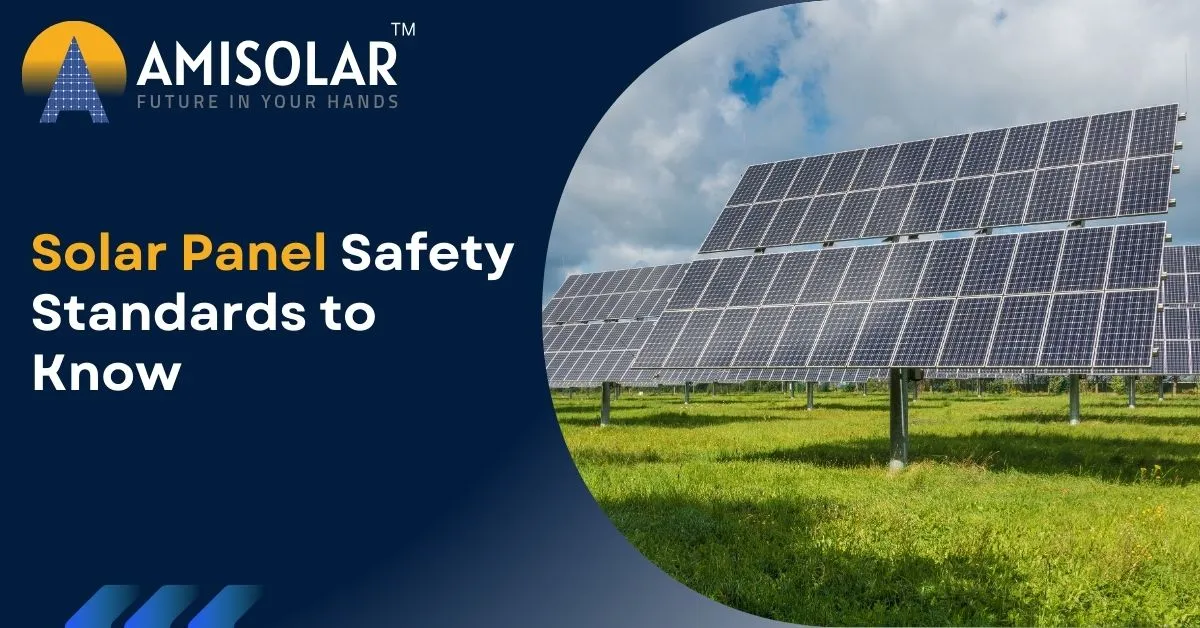As energy prices rise and concerns over the environment grow, many homeowners are turning to…

Solar energy is a popular, sustainable power source, harnessing sunlight to generate electricity. But a common question people often ask is: Can solar panels work at night? The simple answer is no, solar panels cannot produce electricity after the sun sets. However, solar energy can still be useful at night through various technologies that store the energy generated during the day.
This blog will dive into how solar panels work, why they don’t generate power at night, and the solutions that allow you to use solar energy even after dark.
How Do Solar Panels Work?
Solar panel’s function using photovoltaic (PV) cells, which convert sunlight into electricity. Here’s a basic breakdown of the process:
- Sunlight Hits the Panels: During the day, when sunlight strikes the PV cells, they create an electric field.
- Energy Generation: This electric field generates direct current (DC) electricity, which is then converted into alternating current (AC) through an inverter to power homes or businesses.
But this process requires sunlight. When the sun goes down, the panels no longer have a light source, which is why they stop generating power at night.
What Happens to Solar Panels at Night?
Since there is no sunlight at night, solar panels cannot generate electricity in real time. However, that doesn’t mean you are left without power when the sun isn’t shining. There are a couple of key solutions that ensure you can still have electricity at night:
Solar Battery Storage:
- One of the most effective ways to use solar energy at night is through battery storage systems. Solar batteries store the excess energy generated by your solar panels during the day. This stored energy can then be used to power your home after sunset.
- Modern solar battery systems, like lithium-ion batteries, are highly efficient and can provide several hours of power depending on the battery size and your energy consumption.
Have concerns about solar energy for your home? Contact us for quick, expert advice!
Grid-Tied Systems:
- If you don’t have a battery storage system, your solar setup can still be connected to the local power grid. During the day, your solar panels might produce more energy than you use. Any surplus energy can be sent back to the grid, often resulting in credits or net metering.
- At night, when your solar panels aren’t producing electricity, you can draw power from the grid. Essentially, you’re relying on the grid for energy when your panels aren’t active.
Solar Power at Night: The Role of Battery Storage
The biggest advantage of pairing your solar panels with battery storage is the ability to use stored solar energy at night. Here’s how it works:
- During the Day: Your solar panels generate more energy than your household needs. This surplus energy is stored in the battery.
- At Night: When your solar panels aren’t generating electricity, the stored energy is used to keep your lights, appliances, and other electronics running smoothly.
Not all solar systems come with battery storage, so it’s something you may need to consider when installing a new system. Batteries can also help provide backup power during power outages.
Do Solar Panels Work on Cloudy Days?
Though solar panels can’t work at night, they can still work on cloudy days. Solar panels don’t need direct sunlight to generate electricity; they just need daylight. However, the efficiency of solar panels on cloudy days is lower compared to sunny days. You can expect about 10-25% of the usual output on overcast days.
Why Solar Panels Are Still a Great Investment
Even though solar panels don’t generate power at night, they still offer numerous benefits:
- Reduced Electricity Bills: Solar panels can significantly lower your energy bills by producing electricity during the day when energy demand is high.
- Environmentally Friendly: Solar power is a renewable energy source, which helps reduce carbon emissions and fight climate change.
- Energy Independence: With a combination of solar panels and battery storage, you can be less reliant on the grid and use clean energy day and night.
- Backup Power: Batteries provide peace of mind by offering backup power during outages or in times when the grid goes down.
Frequently Asked Questions
Can we use solar power at night?
Yes, you can use solar power at night by utilizing battery storage systems that store excess energy generated during the day for nighttime use.
Is there a solar panel that can work at night?
While standard solar panels cannot generate electricity at night, some technologies, like solar concentrators combined with thermal energy storage, can provide power after dark.
Can solar panels work without sun?
Solar panels can still produce electricity on cloudy days or in low-light conditions, but their efficiency is significantly reduced compared to direct sunlight.
What time do solar panels stop working?
Solar panels typically stop generating electricity at sunset when there is no longer enough sunlight to produce power, though their exact stop time can vary based on location and season.
Conclusion
While solar panels don’t work at night, you can still enjoy the benefits of solar energy with the right solutions. Battery storage systems and grid-tied connections make it possible to access power even when the sun isn’t shining. Solar energy remains one of the most sustainable, cost-effective ways to generate electricity, helping homeowners and businesses reduce their reliance on fossil fuels while cutting down on energy bills.
By understanding how solar panels work and exploring nighttime energy solutions, you can get the most out of your solar investment—day or night!


